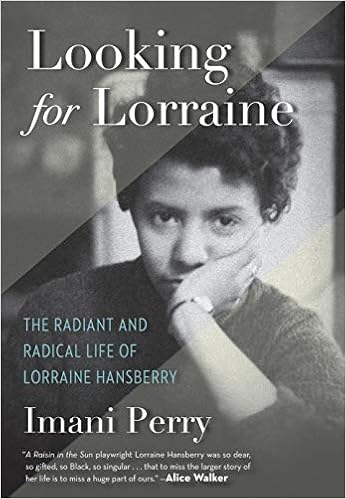We always knew how brilliant she is. Now the 2 people who have never heard of her need to listen up.
 Stevie Nicks (as a solo performer) will be inducted in the Rock & Roll Hall of Fame in 2019. Gold Dust Woman: The Biography of Stevie Nicks (St. Martin’s press, $18.99) details her rise into stardom; author Stephen Davis details her her equally sexy work and life, unearthing fresh details from new, intimate interviews and interpreting them to present a rich new portrait of the star.
Stevie Nicks (as a solo performer) will be inducted in the Rock & Roll Hall of Fame in 2019. Gold Dust Woman: The Biography of Stevie Nicks (St. Martin’s press, $18.99) details her rise into stardom; author Stephen Davis details her her equally sexy work and life, unearthing fresh details from new, intimate interviews and interpreting them to present a rich new portrait of the star.
Rose McCowan’s Brave (HarperOne, $27.99) is her raw, honest and poignant memoir/manifesto—a no-holds-barred, pull-no-punches account of the rise of a millennial icon, fearless activist,  and unstoppable force for change who is determined to expose the truth about the entertainment industry, dismantle the concept of fame, shine a light on a multi-billion-dollar business built on systemic misogyny, and empower people everywhere to wake up and be Brave.
and unstoppable force for change who is determined to expose the truth about the entertainment industry, dismantle the concept of fame, shine a light on a multi-billion-dollar business built on systemic misogyny, and empower people everywhere to wake up and be Brave.
Every Day Is Extra is John Kerry’s passionate, insightful, sometimes funny, always moving account of his life. Kerry tells wonderful stories about colleagues Ted Kennedy and John McCain, as well as President Obama and other major figures. He writes movingly of recovering his faith while in the Senate, and deplores the hyper-partisanship that has infected Washington.
Few books convey as convincingly as this one the life of public service like that which John Kerry has lived for fifty years. Every Day Is Extra shows Kerry for the dedicated, witty, and authentic man that he is, and provides forceful testimony for the importance of diplomacy and American leadership to address the increasingly complex challenges of a more globalized world.
If he’d only run for President . . .
When Jackie Kennedy Onassis died in her Fifth Avenue apartment on tk, her younger sister Lee Radziwill wept inconsolably. Then Jackie’s 38-page will was read. Lee discovered that substantial cash bequests were left to family members, friends and employees—but nothing to her. “I have made no provision in this my Will for my sister, Lee B. Radziwill, for whom I have great affection, because I have already done so during my lifetime,” read Jackie’s final testament.
Drawing on the authors Sam Kashner and Nancy Schoenberge’s candid interviews with Radziwill, The Fabulous Bouvier Sisters: The Tragic and Glamorous Lives of Jackie and Lee (Harper, $28.99) explores their complicated relationship, placing them at the center of twentieth-century fashion, design and style. For the first time, here is the complete story of these larger-than-life sisters.
Drawing on new information and extensive interviews with Lee, now 84, this dual biography sheds light on the public and private lives of two extraordinary women who lived through immense tragedy in enormous glamour.
The relationship between Al Smith and Franklin Roosevelt, superbly portrayed in Terry Golway’s Frank and Al: Frank and Al: FDR, Al Smith, and the Unlikely Alliance That Created the Modern Democratic Party, is one of the most dramatic untold stories of early 20th Century American politics. It was Roosevelt who said once that everything he sought to do in the New Deal had been done in New York under Al Smith when he was governor in the 1920s.
It was Smith who persuaded a reluctant Roosevelt to run for governor in 1928, setting the stage for FDR’s dramatic comeback after contracting polio in 1921. They took their party, and American politics, out of the 19th Century and created a place in civic life for the New America of the 20th Century.
John Wayne predicted that Michael Caine would become a star. He was right, and Caine, now 85, has made more than 100 films in his six-decade career. In Blowing the Bloody Doors Off: And Other Lessons in Life (Hachette Books, $28), Caine shares wisdom and stories from his remarkable career.
We love his take on aging: He bittersweetly acknowledges that many of his pals are dead; truths that keep Caine going. Even the dishy dirt is told with charm, the charm that still can be heard in his accent.
it seems like there’s no place anymore for optimism, integrity and good old-fashioned respect. Enter “America’s Dad”: Tom Hanks. Whether he’s buying espresso machines for the White House Press Corps, rewarding a jovial cab driver with a night out on Broadway or extolling the virtues of using a typewriter, Hanks lives a passionate, joyful life and pays it forward to others.
 In The World According to Tom Hanks: The Life, the Obsessions, the Good Deeds of America’s Most Decent Guy (Grand Central Publishing, $26), Gavin Edwards takes readers on a tour behind the scenes of Hanks’s life: from his less-than-idyllic childhood, rocky first marriage, and career wipeouts to the pinnacle of his acting career and domestic bliss with the love of his life, Rita Wilson. Hanks is, indeed, the role model we all crave.
In The World According to Tom Hanks: The Life, the Obsessions, the Good Deeds of America’s Most Decent Guy (Grand Central Publishing, $26), Gavin Edwards takes readers on a tour behind the scenes of Hanks’s life: from his less-than-idyllic childhood, rocky first marriage, and career wipeouts to the pinnacle of his acting career and domestic bliss with the love of his life, Rita Wilson. Hanks is, indeed, the role model we all crave.
Richard Rodgers and Oscar Hammerstein IIstand at the apex of the great age of songwriting, the creators of the classic Broadway musicals Oklahoma!, Carousel, South Pacific, The King and I and The Sound of Music, whose songs have never lost their popularity or emotional power. Even before they joined forces, R&O had written dozens of Broadway shows, but together they pioneered a new art form: the serious musical play. Their songs and dance numbers served to advance the drama and reveal character, a sharp break from the past and the template on which all future musicals would be built.
Todd S. Purdum’s portrait of these two men, their creative process, and their groundbreaking innovations will captivate lovers of musical theater, lovers of the classic American songbook, and young lovers wherever they are.
Lorraine Hansberry was a force of nature. Although best-known for her work A Raisin in the Sun, her short life was full of extraordinary experiences and achievements, and she had an unflinching commitment to social justice, which brought her under FBI surveillance when she was barely in her twenties. While her close friends and contemporaries, like James Baldwin and Nina Simone, have been rightly celebrated, her story has been diminished and relegated to one work—until now.

Though she married a man, she identified as lesbian and, risking censure and the prospect of being outed, joined one of the nation’s first lesbian organizations. Hansberry associated with many activists, writers, and musicians, including Malcolm X, Langston Hughes, Duke Ellington, Paul Robeson and W.E.B. Du Bois.
Imani Perry’s Looking for Lorraine: The Radiant and Radical Life of Lorraine Hansberry (Beacon Press, $26.95) is a tad academic, but it’s a powerful insight into Hansberry’s extraordinary life—a life that was tragically cut far too short. (She died at 34.)
In the revelatory Arthur Ashe: A Life (Simon & Schuster, $37.50), Raymond Arsenault chronicles Ashe’s rise to stardom on the tennis court, but much of the book explores his off-court career as a human rights activist, philanthropist, broadcaster, writer, businessman and celebrity. In the ’70s and ’80s, Ashe gained renown as an advocate for sportsmanship, education, racial equality, and the elimination of apartheid in South Africa.
From 1979 on, he was forced to deal with a serious heart condition that led to multiple surgeries and blood transfusions, one of which left him HIV-positive. In 1988, after completing a three-volume history of African-American athletes, he was diagnosed with AIDS, a condition he revealed only four years later. After devoting the last 10 months of his life to AIDS activism, he died in February 1993 at the age of forty-nine, leaving an inspiring legacy of dignity, integrity, and active citizenship.

Based on prodigious research, including more than 100 interviews, Arsenault’s insightful and compelling biography puts Ashe in the context of both his time and the long struggle of African-American athletes seeking equal opportunity and respect.
